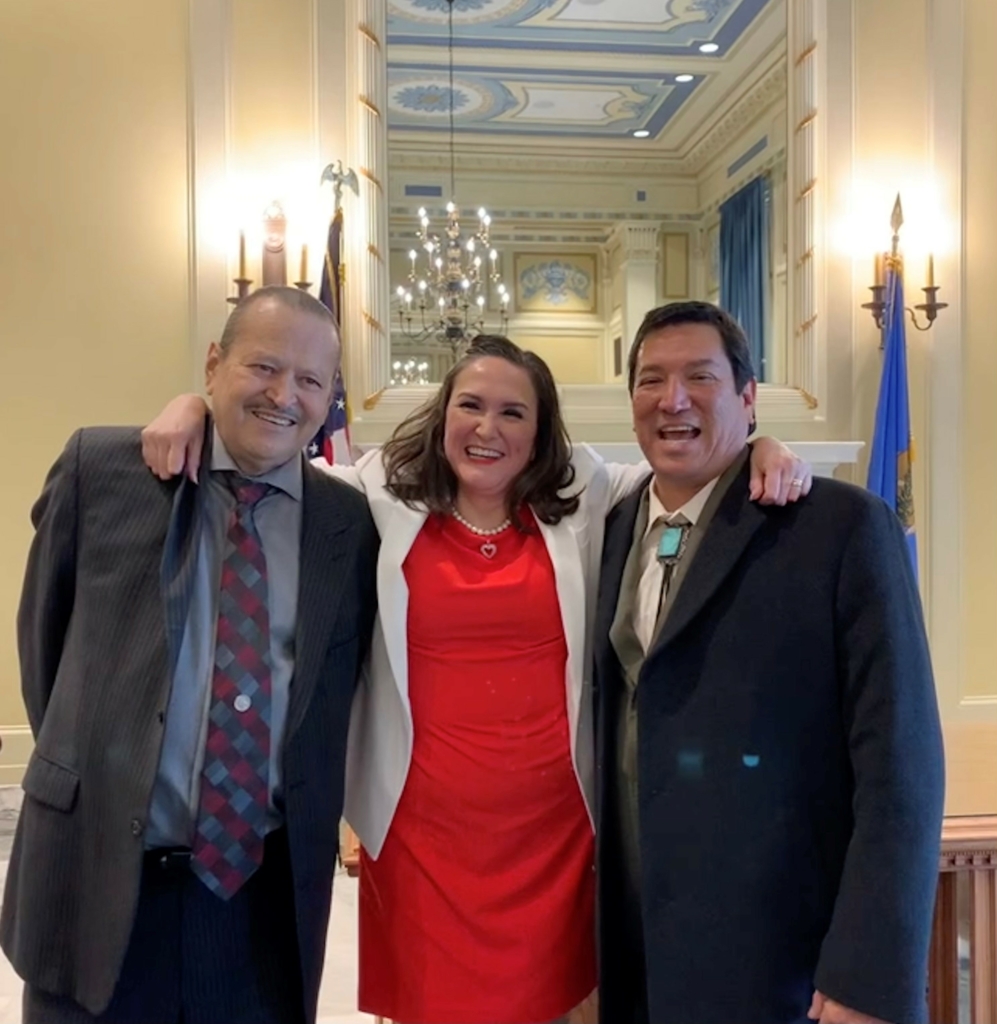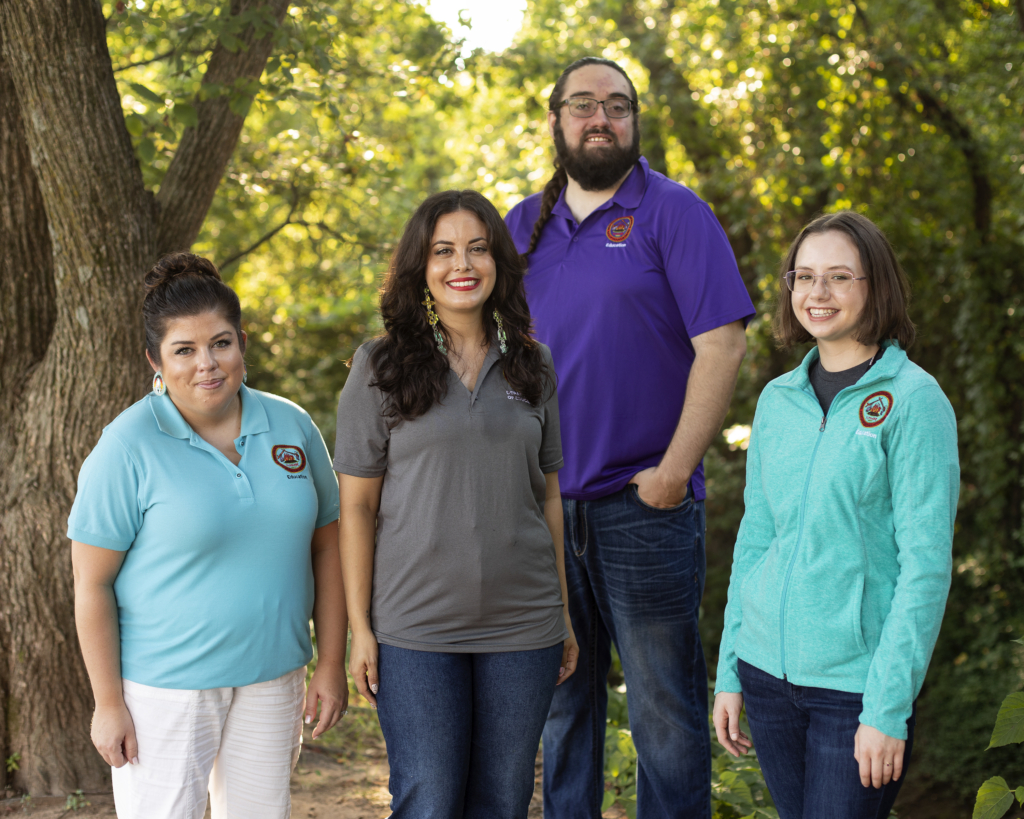During this episode, we’ll hear about Oklahoma’s Ida’s Law as it goes into effect and a new lesson plan on the Potawatomi Trail of Death for K through 12 students. We’ll also listen back to an interview with a Potawatomi Navy member who served during WWII to celebrate Veteran’s Day.
Ida’s Law goes into effect on Nov. 1
On Nov. 1st, Ida’s Law went into effect in Oklahoma. LaRenda Morgan, the Governmental Affairs Officer for the Cheyenne and Arapaho Nations, spearheaded the effort in state congress and named it after her cousin, Ida Beards who went missing in 2015. Citizen Potawatomi Nation showed its support for the bill as a member of the Oklahoma House of Representatives Native American Caucus. Oklahoma Governor Kevin Stitt signed Senate Bill 172 in April 2021, and now the Oklahoma State Bureau of Investigation begins the task of creating an office of liaison and missing persons database for Indigenous peoples in the state. Morgan spoke with Hownikan Podcast on the day the law went into effect and discussed jurisdictional issues, educating law enforcement, and finding federal funding for the office and new positions.

“I think some of the most important aspects of Ida’s Law is the office of liaison for the (Oklahoma State Bureau of Investigation) is able to assist the law enforcement agencies with the cases and understanding jurisdiction as well as collecting data and numbers and assisting the tribal families.. with cases and kind of providing information about what can and can’t be done in investigations and helping them have realistic expectations about what’s going to happen,” Morgan said.
Read more about the Missing and Murdered Indigenous Peoples Crisis from the U.S. Department of the Interior at cpn.news/MMIP.
New lesson plans fill gap on Potawatomi history
In an attempt to meet requests from teachers and school districts throughout the country, the Citizen Potawatomi Nation Department of Education began composing lesson plans about Potawatomi history in 2021. CPN Department of Education Director Tesia Zientek said the first one available now tells the story of the Potawatomi Trail of Death.

“I’m really proud that we have something to offer educators or citizens now when they ask, ‘How can I incorporate Citizen Potawatomi Nation into our classroom?’” said CPN Department of Education Director Tesia Zientek.
Find out more about the CPN Department of Education at cpn.news/education, and email feedback or topic ideas at college@potawatomi.org. Access the lesson plans online at potawatomiheritage.com/classroom.
The Native American Speaks: Navy veteran Jesse Slavin
We’re looking back at The Native American Speaks, a former radio show from Citizen Potawatomi Nation’s Public Information Department and KGFF. It ran from 2006 to 2013 with host Michael Dodson, pervious Public Information Department Director. In this clip, Dodson interviews CPN member and Army veteran Jesse Slavin. This interview is also part of the CPN Cultural Heritage Center’s Veterans Project, and we honor Slavin and all Tribal military members for their service this month for Veteran’s Day.

“I got into gunnery school, anti-aircraft gunnery, Pacific Beach, California, and I stayed there from 1943 to 1946, or there abouts. My specialty was .20 mm and we trained everybody. We were trying to deal with the Japanese suicide planes at that time,” Slavin said.
The Citizen Potawatomi Nation’s Cultural Heritage Center’s Tribal Heritage Project seeks to capture each CPN veteran and elder’s story through video interviews to safeguard the Nation and Tribal members’ history for generations to come. Find details on the Tribal Heritage Project at portal.potawatomi.org, by calling the CHC at 405-878-5830.
Learning Language
It’s time for Learning Language, when the CPN Language Department joins us to teach vocabulary, songs, stories and more. In this segment just in time for the holiday season, department director Justin Neely joins us for a vocabulary lesson about a specific type of food.
For more information and opportunities with language, including self-paced classes, visit cpn.news/language. You can find an online dictionary at potawatomidictonary.com as well as videos on YouTube. There are also Potawatomi courses on the language-learning app Memrise.
Hownikan Podcast is produced and distributed by Citizen Potawatomi Nation’s Public Information Department. Subscribe to Hownikan Podcast on Apple Podcasts, Spotify, SoundCloud and wherever you find your favorite shows. Find digital editions of the Tribal newspaper here.
